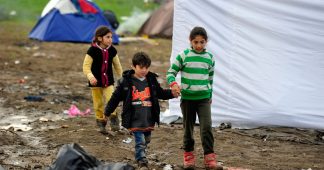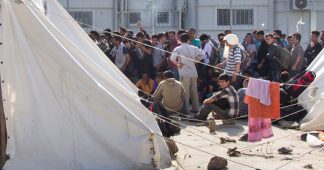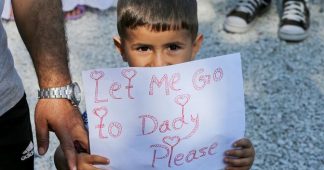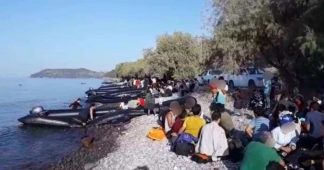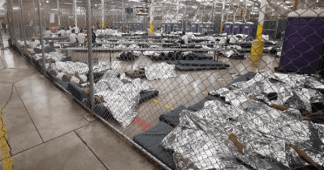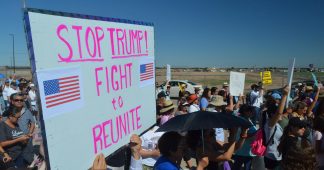European Member States urged to increase relocation pledges and fast-track family reunifications
GENEVA, 29 August2019 – The number of unaccompanied and separated refugee and migrant children, staying in dangerou sand overcrowded Reception and Identification Centres on the Greek islands, and detention facilities across the country, now exceeds 1,100 – the largest number since the beginning of 2016 –UNICEF said today. The agency urged European Member States to do more to protect these particularly vulnerable children.
“This past weekend a child lost his life and two more were injured in a violent incident in the Reception and Identification Centre in Moria. This latest tragedy is a stark reminder that the situation in Reception Centres in Greece is at a breaking-point,” said UNICEF Regional Director for Europe and Central Asia and Special Coordinator for the Refugee and Migrant Response in Europe, Ms. Afshan Khan. “We continue to appeal to Greek authorities to transfer children to adequate accommodation on the mainland, but Greece cannot support refugee and migrant children alone. It is vital that European Governments increase pledges to relocate unaccompanied and separated refugee and migrant children, and fast-track family reunifications for those who already have relatives in Europe.”
To further highlight the situation, UNICEF has released a short film documenting the dreams and despair of boys staying in “Section B,” an area meant to provide specialized protection for unaccompanied children in the Reception and Identification Centre in Moria, on the Greek island of Lesvos. Th efilm depicts children as they recount the horrors that made them flee their homes, the dangerous journeys they undertook, the difficult conditions at the centre, and their fears and hopes surrounding their uncertain futures.
“I couldn’t study because there was no security, the situation forced me to leave the country,” says 16-year-old Morteza* from Afghanistan, one of four boys featured in the new film. “I think day by day they lost their minds,” he says about other boys in‘Section B.’“Because of that, sometimes they cut their hands. I don’t want to be like that.”
The film shows staff who are dedicated to the care and protection of the children, yet they are exhausted and overwhelmed. Services are overstretched, and children remain at risk of violence and abuse with limited access to school, health care and psychosocial support. Children often remain in ‘Section-B’ longer than the 25-day maximum stipulated by Greek law because suitable accommodation on the Greek mainland is full.
The Reception Centre in Moria is meant to accommodate 3,000 people, but currently has more than 8,700, including 3,000 children. ‘Section B,’including the adjacent area, has room for 160unaccompanied children, but now has more than520.
Actions European Governments and EU Institutions should take to protect the rights of refugee and migrant children include:
- Increasing pledges to relocate unaccompanied and separated children – particularly those in Greece, Italy and Spain.
- Fast-tracking family reunifications for children who already have relatives living in the rest of Europe.
- Urgently increase funds to support and strengthen response efforts of European countries receiving the largest number of refugees and migrants.
Once children enter Europe,EU Governments should work together to ensure all refugee and migrant children – accompanied or not – have access to safe and adequate shelter, eliminating detention as an option. Children need immediate access to essential services and at all stages of their journey, while ensuring safe passages and legal pathways. Specialized accommodation, foster care, guardianship and other measures are needed to ensure every unaccompanied or separated child realizes his/her right to grow up in a caring environment.
Currently, there are more than 32,000 refugee and migrant children in Greece, including more than 4,000 who are unaccompanied and separated.Over the last three years, UNICEF has supported more than 60,000 refugee and migrant children and their families in Greece. This work includes ensuring children have access to vital child protection services, including psychosocial support, health care and education. UNICEF is also working with the Ministry of Health, providing 85,000 vaccines to protect refugee and migrant children from diseases.
*Name changed to guarantee protection.
